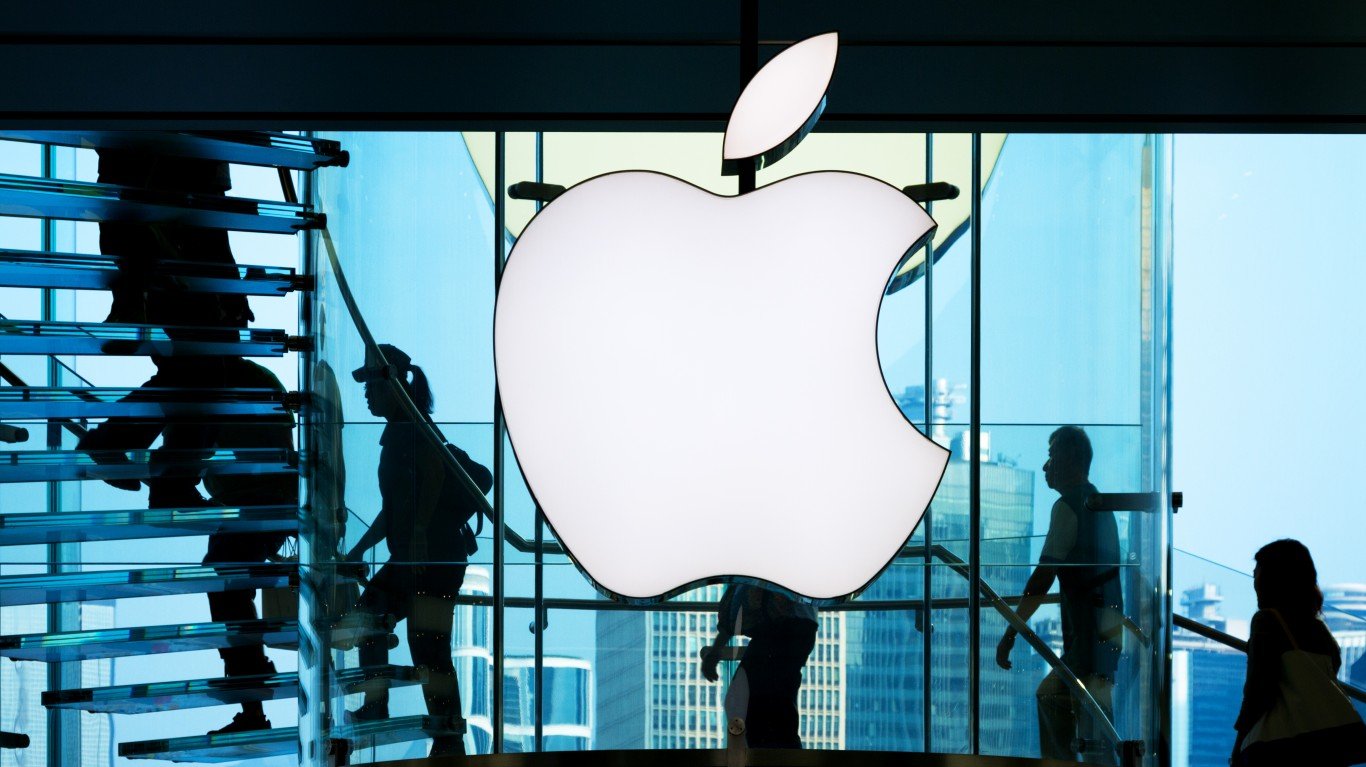

Did you know that Apple Inc. (NASDAQ: AAPL) offers a free engraving service for everything from AirTags to iPhones? Customers can personalize their own devices or have a message engraved on a gift. There are limits, however.
According to The Verge, Apple has “always said it filters engraving requests to avoid racist language, vulgarities, or intellectual property violations.” What the company does not say, according to a new study by Brussels-based CitizenLab, is that Apple restricts engravings by region as well.
CitizenLab submitted engraving requests in six regions: the United States, Canada, Japan, Taiwan, Hong Kong and China. According to the report, there are 1,045 keywords and phrases that are banned in China, 542 in Hong Kong, 397 in Taiwan, 206 in Canada, 192 in Japan and 170 in the United States. When someone types a desired message, Apple’s interface validates each character as it is typed. If the message is not allowed in a particular region, it is rejected.
In Taiwan, for example, the characters for Xi Jinping are rejected. In China, “Dalai Lama” is not allowed. According to CitizenLab, if a message is rejected by the mainland China interface, the following message is displayed: “Please resubmit your engraving message. Personalize with your initials, lucky numbers, and favorite emoji.”
AppleInsider reported Thursday morning, that more than 80 civil rights organizations from around the world have banded together and sent an open letter to Apple asking the company to abandon its planned scanning of images for child sexual abuse material (CSAM).
Here are a few excerpts:
Though these capabilities are intended to protect children and to reduce the spread of child sexual abuse material (CSAM), we are concerned that they will be used to censor protected speech, threaten the privacy and security of people around the world, and have disastrous consequences for many children.
Once this backdoor feature is built in, governments could compel Apple to extend notification to other accounts, and to detect images that are objectionable for reasons other than being sexually explicit.
Once this capability is built into Apple products, the company and its competitors will face enormous pressure — and potentially legal requirements — from governments around the world to scan photos not just for CSAM, but also for other images a government finds objectionable. Those images may be of human rights abuses, political protests, images companies have tagged as “terrorist” or violent extremist content, or even unflattering images of the very politicians who will pressure the company to scan for them.
Finally, Morgan Stanley analyst Katy Huberty said Wednesday in a research note to clients that she estimates Apple’s iPhone shipments in China during July rose by 79% year over year, compared to an increase of just 27% for the country’s own handset makers. In a report from Barron’s, Huberty estimates that Apple’s Chinese market share rose to 20.7% in July, its highest level in more than two years. She expects to see continued strong sales in China following next month’s release of the iPhone 13.
Take This Retirement Quiz To Get Matched With An Advisor Now (Sponsored)
Are you ready for retirement? Planning for retirement can be overwhelming, that’s why it could be a good idea to speak to a fiduciary financial advisor about your goals today.
Start by taking this retirement quiz right here from SmartAsset that will match you with up to 3 financial advisors that serve your area and beyond in 5 minutes. Smart Asset is now matching over 50,000 people a month.
Click here now to get started.
Thank you for reading! Have some feedback for us?
Contact the 24/7 Wall St. editorial team.



